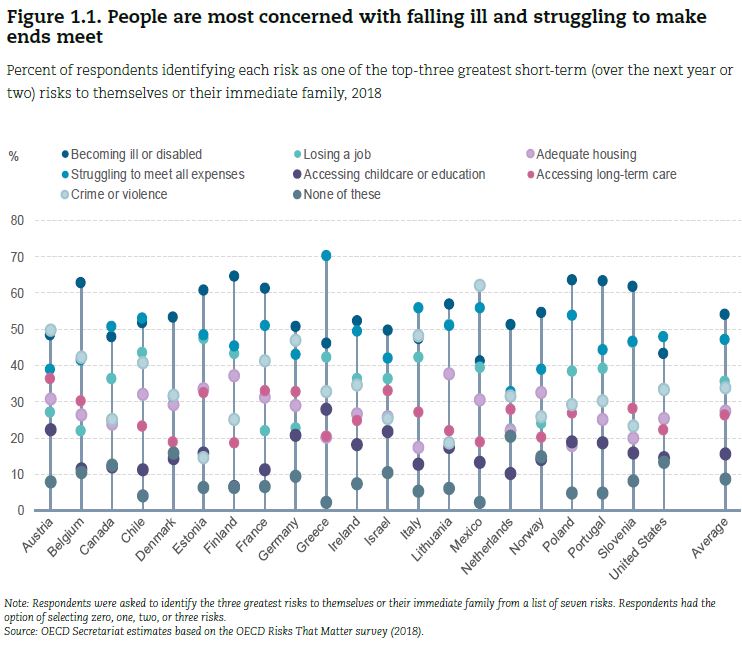The Risks that Matter Survey by the Organisation for Economic Co-operation and Development polled a representative sample of 22,000 adults in 21 OECD countries in 2018. Now released, the study examines people’s perceptions of the social and economic risks they face and assesses how well people feel government reacts to their concerns. Although the survey does not include Australia, it covers a variety of countries: Austria, Belgium, Canada, Chile, Denmark, Estonia, Finland, France, Germany, Greece, Israel, Ireland, Italy, Lithuania, Mexico, the Netherlands, Norway, Poland, Portugal, Slovenia and the United States.
Main findings
The nationally representative survey reveals a dissatisfaction with current social policy:
- Only a minority of respondents are satisfied with access to services like health care, housing, and long-term care.
- More than half think they would not be able to easily access public benefits if they needed them.
- Many believe the government would not be able to provide a proper safety net if they lost their income due to job loss, illness or old age. Falling ill and not being able to make ends meet are often at the top of people’s lists of immediate concerns.
- Making ends meet is a particularly common worry for those on low incomes and in countries that were hit hard by the financial crisis.
- Older people are most often worried about their health, while younger people are frequently concerned with securing adequate housing.
- When asked about the longer-term, across all countries, getting by in old age is the most commonly cited worry.
Wake-up call for policy makers
‘This is a wake-up call for policy makers,’ said OECD Secretary-General Angel Gurría. ‘OECD countries have some of the most advanced and generous social protection systems in the world. They spend, on average, more than one-fifth of their GDP on social policies. Yet, too many people feel they cannot count fully on their government when they need help. A better understanding of the factors driving this perception and why people feel they are struggling is essential to making social protection more effective and efficient. We must restore trust and confidence in government, and promote equality of opportunity.’
(Source: News release | OECD Risks that Matter Survey 2018)




Recent Comments